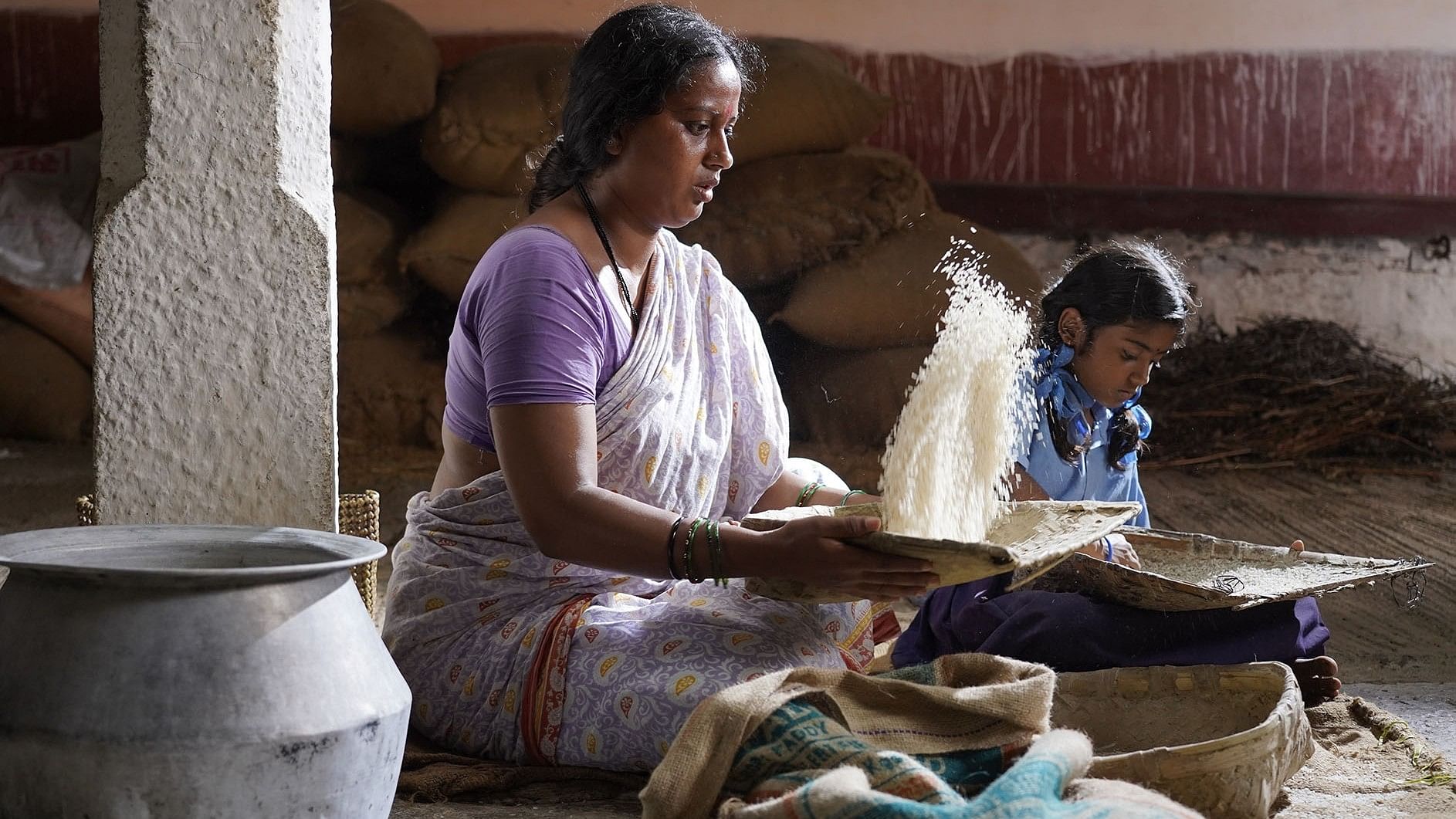
Champa Shetty’s 'Koli Esru' is an adaptation of K T Chikkanna’s Kannada short story ‘Hucheeri Hesarina Prasanga’ published in the late 1980s.
The filmmaker has tweaked the story for a powerful take on feminism. Shetty’s attempt is a success. It is one of the few Kannada films that tells a story from the feminist perspective.
‘Koli Esru' is set in a fictitious village bordering the Mysuru and Chamarajanagar districts. It portrays the struggles of Hucheeri (Akshatha Pandavapura), who is deprived of motherly love at a tender age. She is married off by her stepmother to a drunkard, and is thus separated from her loving father and her idyllic village. Her husband is many years her senior.
The events, which unfold over a span of 24 hours, highlight her tremendous sacrifices and difficulties, all just to obtain a bowl of chicken curry for her 10-year-old daughter Lakshmi. The subsequent developments compel an illiterate Hucheeri to break the shackles of patriarchy to live a respectable life.
The flick deals with themes of hunger, penury, lust, patriarchy, victimisation of women and education of girls. Hucheeri’s life becomes a larger tale about women’s fight for survival amidst patriarchal and societal pressures.
Akshatha Pandavpura delivers an outstanding performance. Child artiste Apeksha Nagaraj Chornahalli steals the show.
Background music by Sangeeth Thomas and Jaipal Raj complements the mood. Francis Rajkumar’s camerawork deserves appreciation.
The film won 17 accolades at various national and international film festivals.